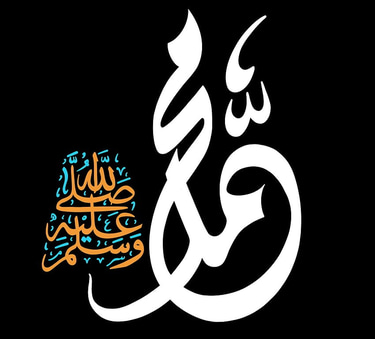Islam Basic Beliefs
Discover the path to peace through submission to the Divine will
Discover Islam's
Learn about Islam's basic beliefs and history, centered around monotheistic faith in Allah. Find peace through voluntary submission to the divine will.


Islam: Basic Beliefs
Islam is an Arabic word which means "surrender, submission, commitment and peace." Thus, Islam can be defined as a path to attain complete peace through voluntary submission to the divine will.
How did Islam begin?
Islam is a monotheistic faith centered around belief in the one God (Allah). In this regard, it shares some beliefs with Judaism and Christianity by tracing its history back to the patriarch Abraham, and ultimately to the first prophet, Adam. All the prophets preached the same universal message of belief in one God and kindness to humanity. The last in the series of all prophets; is Prophet Muhammad (Peace Be Upon Him).
Prophet Muhammad (Peace Be Upon Him) was born in Makkah around 570 CE. In the year 610 CE, when Prophet Muhammad (Peace Be Upon Him) was about 40 years old, he received a revelation from God through the angel Jibril (Gabriel). He continued to receive messages from God throughout his life and he began preaching to others what he had learned. His main message is that there was no other God but Allah and that people should lead their lives in a way that was pleasing to Allah.
How many Muslims are there?
Islam spread quickly first throughout Arabia and surrounding countries and then throughout the world. There are 1.9 billion Muslims in the world with 7 million in the United States. Only about 18% of Muslims are Arabs and live in the Middle East. Among, the countries with the largest Muslim populations are Indonesia, Pakistan and India. There are two basic groups of Islam: the Sunnis (about 80% of the world's Muslims) and the Shi'ites (about 20% of the world's Muslims). the countries with the largest Muslim populations are Indonesia and Pakistan.
What does Islam mean?
Islam is an Arabic word which means "surrender, submission, commitment and peace." Thus, Islam can be defined as a path to attain complete peace through voluntary submission to the divine will.
Who is Allah (God)?
"Allah" is simply the Arabic word for God. He is the same universal God worshipped by people of all faiths. The word "Allah" is sometimes preferred over God because it is neither masculine nor feminine. Also, there is no plural for "Allah."
What do Muslims believe?
Muslims have six major beliefs:
Belief in one God (Allah)
Belief in the Angels
Belief in the holy books sent to all the prophets including Torah that was revealed to the prophet Moses, Bible that was revealed to the prophet Jesus, and Qur'an (Koran) that was revealed to the Prophet Muhammad (Peace Be Upon Him).
Belief in all the prophets sent by God including Noah, Abraham, Ishmael, Isaac, Jacob, Moses, Jesus and Muhammad (peace be upon them). Although Muslims believe in Isa or Jesus they don't think of Jesus as the Son of God the way Christians do.
Belief in the Day of Judgment and life after death. The best reward for performing good deeds is getting closer to God.
Belief in divine decree. This means that God is all-powerful and nothing can happen without His permission, however, he has given human beings freedom to choose whether to be good or bad. In the end, everyone will be questioned about how they lived in this life.
What are the Five Pillars of Islam?
These are guides for daily life for putting the beliefs of Muslims into practice:
Shahadah (declaration of faith)—to bear witness or testify that there is no god except one God (Allah) and Muhammad (Peace Be Upon Him) is His prophet or messenger.
Salat (ritual prayer)—the five daily prayers are performed at dawn, noon, mid-afternoon, sunset and night. The prayers are offered in Arabic language and facing the direction of Makkah (Mecca).
Zakah (alms tax) – Giving 2.5% of one's wealth to the poor and needy.
Sawm (fasting)—Muslims fast during the daylight hours in the ninth month of the Islamic lunar calendar called Ramadan. The purpose is to remind people of the goodness of what they have and to show equality with the poor. Ramadan is a time for study and self-discipline.
Hajj (pilgrimage): Muslims believe in making a pilgrimage to Makkah to the Ka'bah at least once in their lifetime. The Ka'bah is believed to have been built by Ibrahim (Abraham) and his son (Ismail). Prophet Muhammad (Peace Be Upon Him) restored it to worship Allah. For this reason it is a very sacred place to Muslims.
What is the final revealed scripture (a sacred text) for Muslims?
Muslims believe that the last revealed scripture sent by God is the Qur'an or Koran. It is the speech of God revealed in the Arabic language to Prophet Muhammad (Peace Be Upon Him) during his mission of twenty-three years. The Qur'an was written down by scribes and memorized during the lifetime of Prophet Muhammad (Peace Be Upon Him). The Qur'an emphasizes moral, ethical and spiritual values with the aim of establishing justice for everyone. Many Muslims try to learn to read the Qur'an in its original language, Arabic. It is not uncommon for Muslims to memorize whole chapters of it. They read part of it every day. The Sunnah is a record of Prophet Muhammad's (Peace Be Upon Him) words and deeds. The Sunnah is used to help interpret the Qur'an. There is also instruction in it on belief, worship and behavior.








Peaceful Path Today


